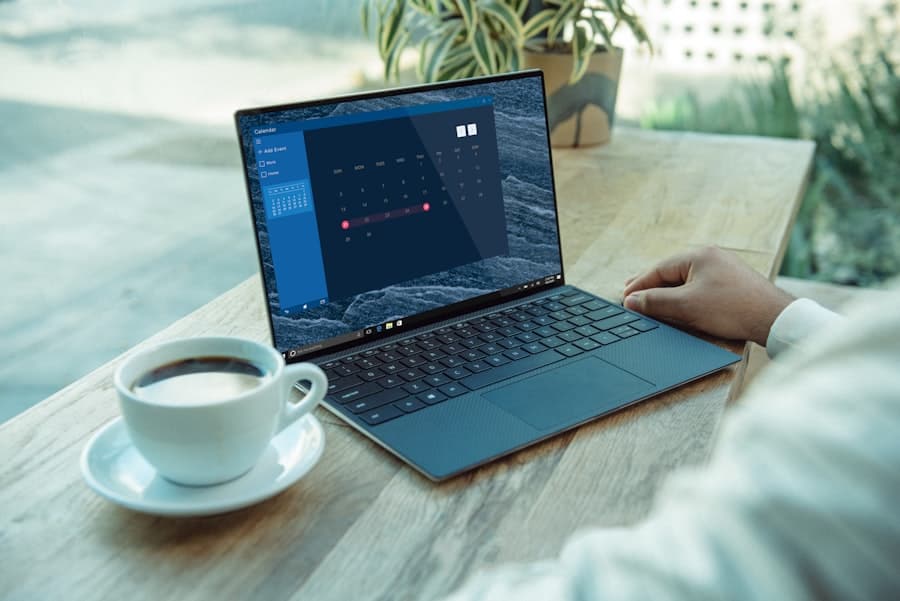The advent of 5G technology marks a significant milestone in the evolution of wireless communication, promising to reshape the landscape of connectivity across various sectors. As businesses increasingly rely on digital solutions, the transition from 4G to 5G is not merely an upgrade in speed; it represents a paradigm shift that enhances the capabilities of devices, particularly business laptops. The rapid deployment of 5G networks worldwide is set to revolutionize how organizations operate, enabling them to harness the full potential of advanced technologies such as artificial intelligence, the Internet of Things (IoT), and big data analytics.
5G connectivity trends are characterized by ultra-low latency, higher bandwidth, and the ability to connect a vast number of devices simultaneously. This new generation of mobile technology is designed to support a wide array of applications, from real-time data processing to seamless video conferencing. As businesses adapt to this new environment, the implications for business laptops are profound.
These devices will not only need to support 5G connectivity but also leverage its capabilities to enhance productivity, collaboration, and overall operational efficiency.
Key Takeaways
- 5G connectivity is revolutionizing the way business laptops operate, offering faster speeds and improved reliability.
- Business laptops are experiencing a significant impact from 5G technology, with enhanced speed, performance, and connectivity.
- 5G connectivity provides business laptops with improved speed and performance, allowing for seamless multitasking and faster data transfer.
- The integration of 5G technology with business laptops ensures improved connectivity and reliability, enabling users to stay connected wherever they go.
- Security and privacy considerations are crucial when integrating 5G technology with business laptops, requiring robust measures to protect sensitive data.
The Impact of 5G on Business Laptops
The integration of 5G technology into business laptops is poised to redefine how professionals engage with their work. With the ability to connect to high-speed networks virtually anywhere, employees can access critical applications and data without the constraints of traditional wired connections. This mobility is particularly beneficial for remote workers and those who frequently travel for business, as it allows them to maintain productivity regardless of their location.
The impact of 5G on business laptops extends beyond mere connectivity; it also influences design and functionality. Manufacturers are increasingly focusing on creating laptops that are not only lightweight and portable but also equipped with built-in 5G modems. This shift means that users will no longer need to rely on external dongles or Wi-Fi hotspots, which can be cumbersome and unreliable.
Instead, they can enjoy seamless connectivity directly from their devices. Furthermore, the enhanced capabilities of 5G will enable laptops to support more demanding applications, such as high-definition video streaming and complex data analysis, which were previously limited by slower network speeds.
Enhanced Speed and Performance

One of the most significant advantages of 5G technology is its remarkable speed. With theoretical download speeds reaching up to 10 Gbps, business laptops equipped with 5G capabilities can facilitate rapid data transfer and real-time collaboration. This speed is particularly advantageous for industries that rely on large file transfers, such as media production, engineering, and scientific research.
For instance, a graphic designer working on high-resolution images can upload and share files with clients or colleagues in seconds rather than minutes, streamlining workflows and enhancing productivity. Moreover, the performance improvements brought about by 5G extend beyond mere speed. The technology’s low latency—often as low as one millisecond—enables near-instantaneous communication between devices.
This is crucial for applications that require real-time feedback, such as video conferencing or online gaming. In a business context, this means that teams can collaborate more effectively, with fewer interruptions and delays. For example, during a virtual meeting, participants can share screens and documents without experiencing lag, leading to more productive discussions and decision-making processes.
Improved Connectivity and Reliability
In addition to speed, 5G technology offers improved connectivity and reliability compared to its predecessors. The architecture of 5G networks is designed to support a higher density of devices, making it possible for multiple users to connect simultaneously without experiencing degradation in service quality. This is particularly important in environments such as offices or conference centers where numerous devices may be vying for bandwidth at the same time.
The reliability of 5G networks also enhances the user experience for business laptop users. With fewer dropped connections and more stable performance, employees can rely on their devices for critical tasks without fear of interruptions. For instance, during a crucial presentation or client meeting conducted over video conferencing software, a stable connection ensures that all participants can engage fully without technical difficulties.
This reliability fosters confidence in remote work arrangements and encourages businesses to adopt more flexible work policies.
Security and Privacy Considerations
As with any technological advancement, the integration of 5G into business laptops raises important security and privacy considerations. The increased connectivity that 5G offers also means that more devices are susceptible to cyber threats. Businesses must be proactive in implementing robust security measures to protect sensitive data transmitted over these networks.
This includes utilizing virtual private networks (VPNs), encryption protocols, and multi-factor authentication to safeguard information from potential breaches. Moreover, the proliferation of IoT devices connected through 5G networks introduces additional vulnerabilities that organizations must address. Each connected device represents a potential entry point for cybercriminals.
Regular software updates and security patches are essential in mitigating risks associated with emerging threats in the ever-evolving digital landscape.
Integration with Cloud Services

The synergy between 5G technology and cloud services is another area where business laptops stand to benefit significantly. With faster speeds and lower latency, accessing cloud-based applications becomes more efficient than ever before.
This integration allows for real-time data access and collaboration across teams, regardless of geographical location. For example, a sales team using a cloud-based customer relationship management (CRM) system can update client information and access sales data instantaneously while on the go. This capability not only enhances productivity but also improves customer service by ensuring that employees have access to the most up-to-date information at all times.
Additionally, the ability to run complex applications directly from the cloud reduces the need for extensive local storage on business laptops, allowing manufacturers to create lighter and more portable devices.
Future-Proofing Business Laptops
As businesses continue to embrace digital transformation, future-proofing their technology investments becomes paramount. Laptops equipped with 5G capabilities are not just a trend; they represent a strategic move towards ensuring longevity in an ever-changing technological landscape. By investing in devices that support 5G connectivity, organizations position themselves to take advantage of future advancements in wireless technology without needing frequent upgrades.
Moreover, as 5G networks evolve and become more widespread, the demand for compatible devices will increase. Businesses that adopt 5G-enabled laptops early on will likely gain a competitive edge by leveraging enhanced connectivity features before their competitors do. This proactive approach allows organizations to stay ahead of industry trends and adapt quickly to changing market demands.
The Evolution of Business Laptops in the 5G Era
The evolution of business laptops in the era of 5G connectivity signifies a transformative shift in how organizations operate and engage with technology. Enhanced speed and performance, improved connectivity and reliability, robust security measures, seamless integration with cloud services, and future-proofing strategies all contribute to a new standard for business computing. As companies navigate this new landscape, embracing 5G technology will be essential for maximizing productivity and fostering innovation.
In this rapidly evolving digital age, business laptops equipped with 5G capabilities are not merely tools; they are enablers of a more connected and efficient workforce. As organizations continue to adapt to these changes, the potential for growth and success will be limited only by their willingness to embrace the opportunities presented by this groundbreaking technology.
If you’re interested in learning more about emerging technologies and how they are impacting various industries, check out Wired.com. This online publication focuses on the latest trends in technology and how they are shaping the future of business. In a related article to how business laptops are adapting to 5G connectivity trends, Wired.com provides valuable insights into the impact of emerging technologies on the business world.
FAQs
What is 5G connectivity and how is it different from 4G?
5G connectivity is the fifth generation of mobile network technology, offering faster speeds, lower latency, and the ability to connect a larger number of devices simultaneously compared to 4G.
How are business laptops adapting to 5G connectivity trends?
Business laptops are incorporating 5G modems to enable faster and more reliable internet connectivity, allowing professionals to work seamlessly from anywhere without relying on Wi-Fi or wired connections.
What are the benefits of 5G connectivity for business laptops?
The benefits of 5G connectivity for business laptops include faster download and upload speeds, improved network reliability, lower latency, and the ability to support bandwidth-intensive tasks such as video conferencing and large file transfers.
Are there any drawbacks to 5G connectivity for business laptops?
Some potential drawbacks of 5G connectivity for business laptops include limited 5G coverage in certain areas, higher data plan costs, and the need for compatible 5G networks and infrastructure.
How can businesses leverage 5G connectivity in their laptop deployments?
Businesses can leverage 5G connectivity in their laptop deployments by equipping their workforce with 5G-enabled laptops, enabling greater flexibility, productivity, and connectivity for employees working remotely or on the go.

